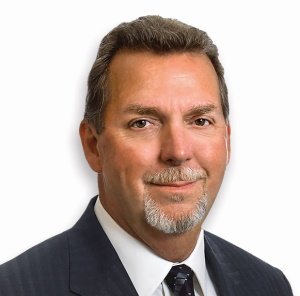Editorials
 Editorial by Darren Wilkins
Editorial by Darren Wilkins
Just when I thought we had completed the 2018–19 hiring process, an opportunity knocked that was too good to pass up. Our new full-time guidance counselor, Katrina Bennie (pictured with her girls Nora, left, and Violet), has worked 10 years at Redlands Adventist Academy (Calif.) as a teacher, guidance counselor and vice principal. She has a master’s degree in school counselling, a doctorate in school administration and leadership and is a certified school psychologist, making her very qualified for this position. Bennie has a warm demeanor and exudes a passion for young people.
Editorial by Gary Gibbs
As the evangelist preached to the crowd gathered at a stadium in Africa, a spiritual battle was raging behind the stage platform. A woman was writhing, kicking and foaming at the mouth. Her deep, gruff voice sent shivers up my spine as I and others prayed for her to be freed from tormenting demons. Through prayer in the name of Jesus, a peaceful calm ultimately swept over her, and she left that night free and happy.
Editorial by Dave Weigley
 I am a witness that dreams do come true, visions do become reality and God does answer prayers! This past August, all three happened when we celebrated the grand opening of Adventist HealthCare (AHC) White Oak Medical Center on Healing Way in Silver Spring, Md. This is something that hadn’t happened in more than a hundred years, and during this journey, some might have wondered if it would happen in a million years. But God is good!
I am a witness that dreams do come true, visions do become reality and God does answer prayers! This past August, all three happened when we celebrated the grand opening of Adventist HealthCare (AHC) White Oak Medical Center on Healing Way in Silver Spring, Md. This is something that hadn’t happened in more than a hundred years, and during this journey, some might have wondered if it would happen in a million years. But God is good!
Around the turn of the 19th to 20th century, Ellen G. White, a pioneer leader of the Seventh-day Adventist movement, envisioned health care happening somewhere “on a grassy slope” in Takoma Park, Md., close to Washington, D.C. It would be a place where the healing and restoration ministry of Jesus Christ, as expressed by His church, could be offered and modeled in the local community. Washington Adventist Hospital became that place, fulfilling the dreams of our forefathers and leaders, extending the “right arm of the gospel” to the masses, and carrying forward the legacy of health and healing. And while it was a difficult decision to relocate, finding a new home became necessary so as to maintain a robust future for this valued ministry.




